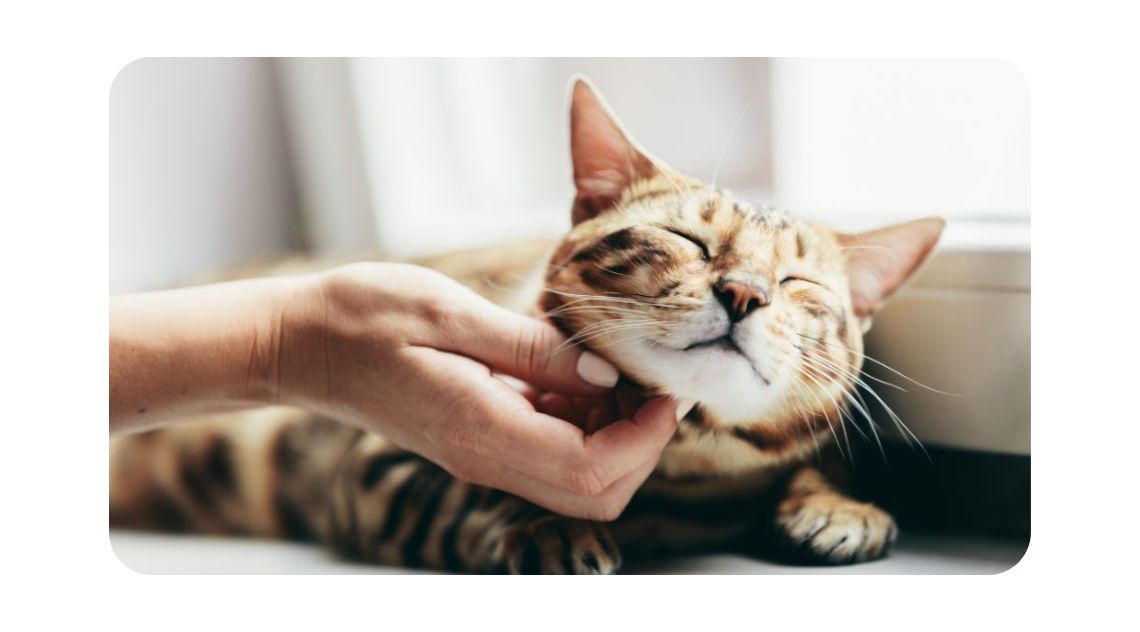High blood pressure in cats can be difficult to detect, as the symptoms are often mild and easily mistaken for other conditions.
Left untreated, high blood pressure in cats can lead to a number of health problems, including heart disease, stroke, and kidney failure.
The best way to ensure your cat is getting the treatment they need is to measure their blood pressure regularly. Cat owners can do this with a simple at-home device.
Detecting anything wrong with your cat as early as possible is crucial to their health and quality of life, so regular blood pressure checks are an important part of being a responsible pet owner.

Blood pressure is the force of blood against the walls of your cat's arteries. A normal blood pressure reading for a cat is between 110/70 and 140/90. Anything over 180/120 is considered high blood pressure.
High blood pressure in cats can be caused by a number of conditions, including:
High blood pressure can also be a side effect of certain medications, such as corticosteroids and nonsteroidal anti-inflammatory drugs (NSAIDs).
The symptoms of high blood pressure in cats can be difficult to detect, as they are often mild and easily mistaken for other conditions. common symptoms include:
If you notice any of these symptoms in your cat, it's important to contact your veterinarian right away. They will be able to determine if high blood pressure is the cause and recommend the best course of treatment.

Cat owners can measure their cats' blood pressure at home using a simple device called a hand-held tonometer.
This device is placed on the top of the head and gives a reading of the systolic (top number) and diastolic (bottom number) blood pressure.
Your veterinarian can show you how to use a hand-held tonometer and will likely recommend that you check your cat's blood pressure at least once a month.
If you notice any changes in your cat's blood pressure readings, be sure to contact your veterinarian right away. They can help determine if the changes are due to an underlying health condition and recommend the best course of treatment.
High blood pressure in cats can lead to a number of serious health problems, including heart disease, stroke, kidney failure and even blindness.
If left untreated, high blood pressure can be fatal. That's why it's so important to detect and treat the condition as early as possible.
It's advised that cat owners measure their cats' blood pressure at least once a month.
As we've mentioned, you can conduct this using a hand-held tonometer. If you notice any changes in your cat's blood pressure readings, be sure to contact your vet right away.
Your vets will likely recommend more frequent blood pressure checks if your cat has been diagnosed with a condition that can cause high blood pressure, such as kidney disease or heart disease.
Regular blood pressure checks are an important part of being a responsible pet owner and ensuring your cat enjoys a long, healthy life.

Here are a few tips to help keep your cat's blood pressure low:
Obesity is a common cause of high blood pressure in cats, so keeping your cat at a healthy weight is important.
A nutritious diet helps to keep all systems functioning properly, including the circulatory system.
Exercise is important for overall health and can help to reduce stress levels, which can contribute to high blood pressure.
Try to create a calm environment for your cat and avoid situations that may cause them stress.
Visit the veterinarian regularly because regular check-ups with your veterinarian can help to detect any health problems early on and prevent them from becoming serious.
Monitoring your cat's blood pressure is important. If you think that your cat may have high blood pressure, we advise that you contact your veterinarian right away. They will be able to properly diagnose the condition and recommend the best course of treatment.
Yes, you can check your cat's blood pressure at home using a hand-held tonometer. This device is placed on the top of the head and gives a reading of the systolic (top number) and diastolic (bottom number) blood pressure.
There are a few signs that may indicate that your cat has high blood pressure, including excessive panting, restlessness, loss of appetite, increased drinking and vomiting. If you notice any of these signs, we recommend that you contact your vetright away.
If your cat has been diagnosed with high blood pressure, there are a few things that you can do to help control it. These include maintaining a healthy weight, feeding a balanced diet, exercising regularly and reducing stress. You should also visit the veterinarian regularly for check-ups.
If left untreated, high blood pressure can lead to a number of serious health problems in cats, including heart disease, stroke, kidney failure and even blindness. High blood pressure can be fatal if it is not treated early on. That's why it's so important to detect and treat the condition as soon as possible.